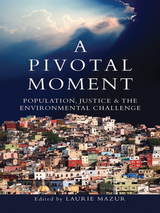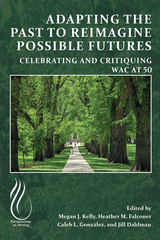
According to the United Nations, 9.6 billion people will inhabit our planet by 2050. Population growth and movement will have an enormous impact on global dynamics in the twenty-first century, in both the developing world as well as in advanced industrialized societies. In light of this global demographic reality, this issue of the Georgetown Journal of International Affairs focuses on the topic of “Destabilizing Demographics,” exploring the opportunities and challenges presented by dynamic population patterns and structures. Demographic shifts affect multiple facets of international affairs, impacting economies, modifying politics, and reshaping the fabric of our societies. These changes could have catastrophic international consequences if ignored or evaded. However, as this issue’s Forum demonstrates, the future holds promise for those who choose to reorganize on the cusp of significant population transformation. Adaptation as a form of mitigation must be informed by diverse solutions and multi-sectoral cooperation. Consider, for example, the intersection of family planning and climate change, or the connection between gender gaps and crime. Through pragmatic policymaking and international collaboration, seismic demographic change may not necessitate disaster. We round out this issue with articles regarding decidedly twenty-first century concerns: communication, integration, and globalization. Moha Ennaji describes the challenges of Berber language incorporation in Morocco and its significance to democratic reform. Dan Saxon examines the role of human judgment in semi-autonomous weapons use, questioning the ethics of unmanned machines. Andrés Monroy-Hernández and Luis Daniel Palacios analyze the utility, efficacy, and implications of citizen journalism within Mexico’s ongoing drug war. And Lawrence Gostin and Alexandra Phelan explore how, in an increasingly interconnected world, the international community can collectively prevent and control the spread of infectious diseases.
The Georgetown Journal of International Affairs is the official publication of the Edmund A. Walsh School of Foreign Service at Georgetown University. Each issue of the journal provides readers with a diverse array of timely, peer-reviewed content penned by top policymakers, business leaders, and academic luminaries. The Journal takes a holistic approach to international affairs and features a ‘Forum’ that offers focused analysis on a specific key issue with each new edition of the publication, as well as nine regular sections: Books, Business & Economics, Conflict & Security, Culture & Society, Law & Ethics, A Look Back, Politics & Diplomacy, Science & Technology, and View from the Ground.

READERS
Browse our collection.
PUBLISHERS
See BiblioVault's publisher services.
STUDENT SERVICES
Files for college accessibility offices.
UChicago Accessibility Resources
home | accessibility | search | about | contact us
BiblioVault ® 2001 - 2024
The University of Chicago Press









